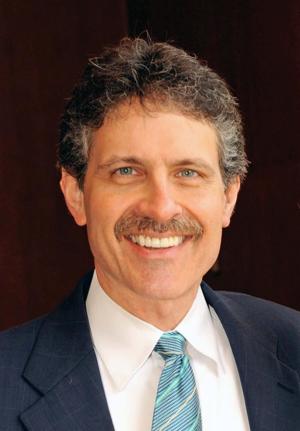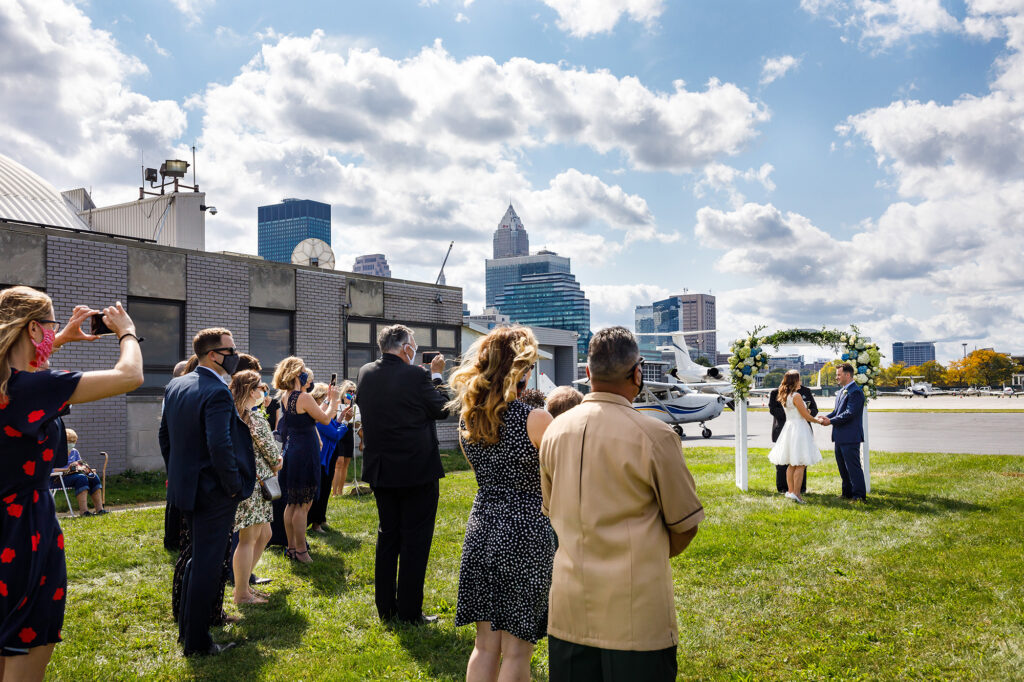Story by McKenna Corson
The start of the new decade was supposed to be remembered as the year many celebrated a monumental life milestone, not dredged through a global pandemic. As tyrannical COVID-19 ascended the throne in Ohio in March, engaged couples and b’nai mitzvah students were left wondering if their event could even happen due to widespread cancellations and safety precautions.

Rabbi Joshua Hoffer Skoff, senior rabbi at Park Synagogue in Pepper Pike and Cleveland Heights, says weddings and b’nai mitzvahs can occur in this new, pandemic-controlled normal. He tells congregants seeking his counseling it’s all about stressing safety and listening to protective guidance to avoid digitizing, postponing or canceling events altogether.
“It doesn’t have to be an either/or proposition,” Skoff says. “Unfortunately it is presented sometimes that it has to be either you’re being safe, or in other words, can you have interaction in terms of these lifecycle events?
“It’s allowing families to share the important moments and connecting them to Judaism, and at the same time, being absolutely respectful of guidelines. It’s not compromising on those things.”
When couples and parents of b’nai mitzvah students ask Skoff about the possibility of having in-person ceremonies during this time, the most important part of his discussion is to cover the health and safety guidelines required to protect those in attendance.
“We just state all the expectations in advance so that people see that we can be joyous and careful at the same time,” Skoff says. “To us, preservation of health is the number one Jewish value. It’s out of respect to the Jewish tradition we’re being safe and being able to celebrate some of these various lifecycle events.”
Park Synagogue’s safety protocol for in-person events include: a guest list limited to a maximum of 25 people, everyone in attendance must wear a mask, guests are spaced in a socially distant manner, events are held outside unless prevented by weather, Skoff and the b’nai mitzvah student speak from behind a Plexiglass screen in front of the podium, the guest list must be submitted in advance and anyone not on it will be turned away, and each guest’s temperature will be checked. B’nai mitzvahs are held online in addition to in-person, so members of the congregation can attend virtually.
The guidelines were created by the synagogue’s staff and advisers from University Hospitals and Cleveland Clinic to maximize Park Synagogue’s safety. But, Skoff says a new protocol will have to be crafted to cater to the winter months.
As the length of the pandemic remains unknown, Skoff doesn’t encourage his congregants to postpone their celebrations. The events he’s been a part of since the pandemic – while divergent in nature from ceremonies held a year ago – have still felt identical at their core.
“When we describe (attending the new lifecycle events and services), people say … ‘How different that must be – that must be awful,’” Skoff says. “As much as it’s different, as the old adage goes, the much, much more it also feels the same.”

